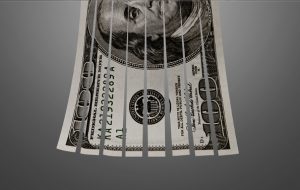 April 15th is coming again this year, right on schedule but not necessarily welcomed. How can you take some of the dread out of Tax Day? Here are some ways to improve the tax picture for the investment side of your ledger. They’re simple, but not always easy to execute properly. Read on…
April 15th is coming again this year, right on schedule but not necessarily welcomed. How can you take some of the dread out of Tax Day? Here are some ways to improve the tax picture for the investment side of your ledger. They’re simple, but not always easy to execute properly. Read on…
Expect to pay less
Many investors, aided by their advisors, pay far too much in taxes on their investment portfolios. Too much on poorly managed capital gains, and too much on all kinds of investment income because those investments should be grouped in tax-deferred accounts. It doesn’t have to be that way.
Don’t ever do this
How can you and your advisor be more tax savvy? Let’s be clear right now in saying: Don’t ever own a mutual fund in a taxable account. Mutual funds were great last-century investment vehicles but are hopelessly out of date now. Why? Because when you buy a mutual fund you are buying everyone else’s tax bill. The day you buy a mutual fund you buy every previous investor’s basis, and their eventual tax.
Do this instead
Complete tax optimization is simple to say and hard to do. Since everyone is different the details of execution are important. Let’s start with six simple concepts:
- Defer gains to the next generation – If you don’t sell, you don’t pay gains. VTI, the Vanguard ETF that holds all 3400 public US stocks, is a good core holding for any portfolio. You can hold it forever and get the US stock market return. VTI has never made a capital gains distribution, so you don’t have to pay capital gains tax.
- Practice asset location – Group your tax hungry investments, like interest bearing bonds or high dividend stocks in tax-deferred accounts like IRAs or SEPs. Asset location determines taxation, so use it appropriately.
- Swap when desirable – There is a silver lining when markets drop. Tax loss harvesting realizes losses to offset current or future gains. Take the loss by selling the position, and buy a similar security to maintain your asset allocation. Two caveats: It’s got to be done correctly or IRS fines apply and it works fine with ETFs, but not individual stocks.
- Grab low-hanging fruit – Back door Roths and legacy 529s are the two sweetest tax deals out there, both fully supported and encouraged by the government. You can do more than you think, so investigate fully or ask your advisor.
- Cue your CPA – Make sure your CPA knows all your tax moves and stays fully in synch with your investment advisor. Both experts need complete information to provide optimal advice and make sure any strategies and transactions comply with tax rules.
Next steps are up to you
If you are not already suppressing your taxes, discuss this article with your investment advisor and your CPA. Call us if you are not getting the answers you deserve. Don’t pay more than your fair share.
John Osbon – josbon@osboncapital.com
Weekly Articles by Osbon Capital Management:
"*" indicates required fields
